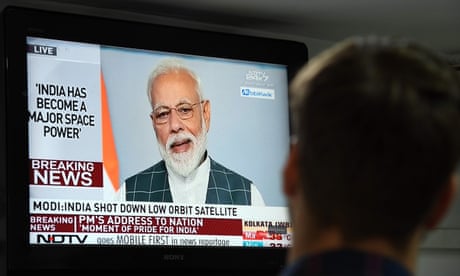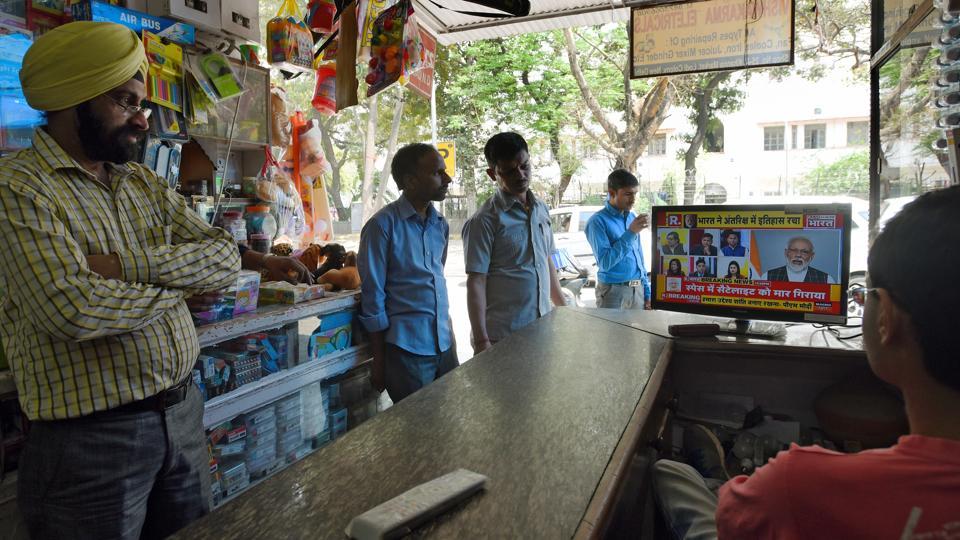India’s destruction of one of its satellites has been labelled a “terrible thing” by the head of Nasa, who said the missile test created 400 pieces of orbital debris and posed a threat to astronauts onboard the International SpaceStation (ISS).
Jim Bridenstine was addressing employees five days after India shot down a low-orbiting satellite in a missile launch that it says elevated the country to the elite tier of space powers.
The satellite shattered into pieces, many of which are dangerously large but too small to track, Bridenstine said. “What we are tracking right now, objects big enough to track – we’re talking about 10cm (six inches) or bigger – about 60 pieces have been tracked.”

The Indian satellite was destroyed at a relatively low altitude of 180 miles (300km), well below the ISS and most satellites in orbit.
But 24 of the pieces were going above the ISS, said Bridenstine. “That is a terrible, terrible thing to create an event that sends debris at an apogee that goes above the International Space Station,” he said, adding: “That kind of activity is not compatible with the future of human spaceflight.”
“It’s unacceptable and Nasa needs to be very clear about what its impact to us is.”
The US military tracks objects in space to predict the collision risk for the ISS and for satellites. It is tracking 23,000 objects larger than 10cm. That includes about 10,000 pieces of space debris, of which nearly 3,000 were created by a single event: a Chinese anti-satellite test in 2007, 530 miles above the surface.
As a result of the Indian test, the risk of collision with the ISS has increased by 44% over 10 days, Bridenstine said. But the risk will dissipate over time as much of the debris will burn up as it enters the atmosphere.
India’s ministry of external affairs said at the time of the launch the test was done in the lower atmosphere to ensure that there was no space debris. “Whatever debris that is generated will decay and fall back on to the Earth within weeks,” it said.
The missile test was celebrated in India but also drew criticism because it was announced by the prime minister, Narendra Modi, while the government is supposed to be in caretaker mode before elections starting this month.
There are estimated to be about 900,000 pieces of debris larger than a marble in orbit around the Earth, according to statistical models cited by the European Space Agency. There are about 34,000 objects circulating that are larger than 10cm.
Even collisions with tiny objects can be catastrophic in space, largely due to the pace at which spacecraft are moving in orbit, a minimum of 7.8km per second.



